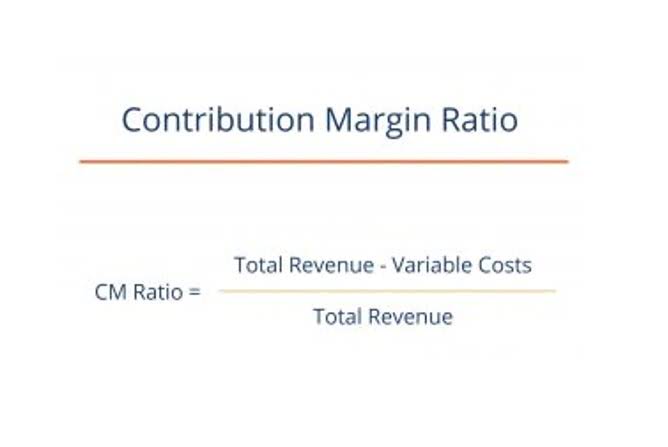
The overriding roles of managers (planning, controlling, and evaluating) lead to the distinction between financial and managerial accounting. The main objective of management accounting is to provide useful information to managers to assist them in the planning, controlling, and evaluating roles. Both managerial accounting and financial accounting are important for a complete financial plan. Managerial accounting helps with planning and making decisions within an organization, while financial accounting makes sure that outside parties are kept informed and following the rules.
Supporting Business Growth

Although outside parties might be interested in this information, companies like Tesla, Microsoft, and Boeing spend significant amounts of time and money to keep their proprietary information secret. Therefore, these internal budget reports are only available to the appropriate users. While you can find a cost of goods sold schedule in the financial statements of publicly traded companies, it is difficult for outside parties to break it down in order to identify the individual costs of products and services. Managerial accounting information is gathered and reported for a more specific purpose for internal users, those inside the company or organization who are responsible QuickBooks for managing the company’s business interests and executing decisions.

SaaS Fractional CFO Roles & Responsibilities: What Every Software Company Should Know

Management accounting and financial accounting are both based on the same broad ideas. They depend on keeping accurate and organized records of all financial deals to make sure that the financial information they give is reliable and consistent. Investopedia is considered to be the largest Internet financial education resource in the world. There are many short, helpful videos that explain various concepts of managerial accounting. Watch this video explaining managerial accounting and how useful it can be to many different types of managers to learn more. Businesses can find a good mix between managing operations and meeting outside needs by combining the two types of accounting and knowing the difference between managerial vs financial accounting.
As to Level of Detail
They give a full picture of a company’s financial health when looked at together. To make good decisions, you need to understand the distinctions between financial accounting vs managerial accounting both management and financial accounting. Managerial accounting gives you the specifics and predictions you need to make choices within the company. Financial accounting gives you a bigger picture of the company’s finances that you need for compliance and reporting to outside parties. Managerial accounting, or management accounting, is all about giving management the information they need for internal decision-making. This branch of accounting is designed to help managers make well-informed business decisions.
This all-around method helps with long-term profits, risk management, and steady growth. When you return to your office, you start clearing away some of the materials that you used in your report, and you discover an error that makes all of your projections significantly overstated. You ask the president’s administrative assistant if the president has presented the https://www.bookstime.com/ report to the board, and you find that he had mentioned it but not given the full report as of yet. You work tirelessly for two straight days compiling projections of sales and revenues to prepare the reports. Financial accounting vs. managerial accounting isn’t a battle, but they are used for different things and by different people, they have a lot in common that makes them both very important in this often outsourced accounting field.
- It is important to know the differences in managerial accounting vs. financial accounting to understand their jobs and how important they are.
- Therefore, these internal budget reports are only available to the appropriate users.
- After completing a financial accounting class, many students do not look forward to another semester of debits, credits, and journal entries.
- A physical count inventory must be done to adjust the inventory and cost of goods sold accounts, depreciation must be calculated and entered, all prepaid asset accounts must be reviewed for adjustments, and so forth.
- This type of analysis helps management to evaluate how effective they were at carrying out the plans and meeting the goals of the corporation.
Types of Reports
For instance, production managers are responsible for their specific area and the results within their division. Accordingly, these production managers need information about results achieved in their division, as well as individual results of departments within the complete the following comparison table between managerial and financial accounting division. The company can be broken into segments based on what managers need—for example, geographic location, product line, customer demographics (e.g., gender, age, race), or any of a variety of other divisions. In the world of business, information is power; stated simply, the more you know, typically, the better your decisions can be. Managerial accounting delivers data-driven feedback for these decisions that can assist in improving decision-making over the long term.
Question: Complete the following comparison table between managerial and financial accounting.
This type of analysis helps management to evaluate how effective they were at carrying out the plans and meeting the goals of the corporation. You will see many examples of reports and analyses that can be used as tools to help management make decisions. It is important to know the differences in managerial accounting vs. financial accounting to understand their jobs and how important they are. Managerial accounting and financial accounting are two of the most prominent branches of accounting. They both deal with processing information which is useful in decision-making; however, they have notable differences that distinguish them from each other.
Financial and Managerial Accounting
- Businesses can find a good mix between managing operations and meeting outside needs by combining the two types of accounting and knowing the difference between managerial vs financial accounting.
- Budgeting, financial modeling, performance measurements, and variance analysis are just a few of the tools and approaches used by managerial accountants to aid in planning and decision-making.
- They both deal with processing information which is useful in decision-making; however, they have notable differences that distinguish them from each other.
- The company can be broken into segments based on what managers need—for example, geographic location, product line, customer demographics (e.g., gender, age, race), or any of a variety of other divisions.
- Management accounting and financial accounting are both based on the same broad ideas.
Business managers can leverage this powerful tool in order to make their businesses more successful, because management accounting adds value to common business decision-making. All of this readily available information can lead to great improvements for any business. Financial accounting looks backward, while managerial accounting helps guide day-to-day decisions and future planning. This is a fundamental difference between financial vs managerial accounting to consider.

One example of a managerial accounting report is a budget analysis (variance report) as shown in the table below. Other reports can include cost of goods manufactured, job order cost sheets, and production reports. Since managerial accounting is not governed by GAAP or other constraints, it is important for the creator of the reports to disclose all assumptions used to make the report.
